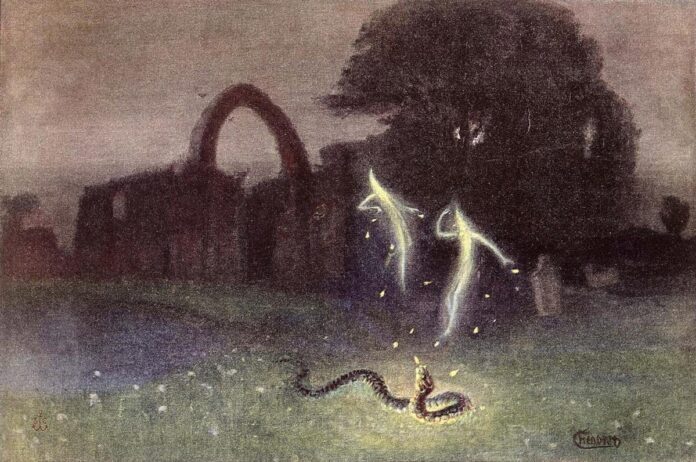Unveiling the Origins of 4 Curious English Expressions: From “So Long” to “Against the Grain”
The English language, rich in history and nuance, is a treasure trove of curious expressions with origins often shrouded in mystery. Understanding these phrases not only unveils their historical significance but also reveals how language evolves over time.
Let’s delve into the fascinating stories behind four such expressions: “so long,” “god speed,” “will-o’-the-wisp,” and “against the grain.”
1. So Long: A Farewell with a Twist
The expression “so long,” once a popular way to say goodbye, may seem straightforward, but its origins are intriguingly elusive. Originally, it might have meant “goodbye until we meet again.” Some suggest it could be derived from the Irish “slán” or German “adieu so lange,” both of which convey similar farewells. Walt Whitman’s use of “so long” in his 1860 poem “So Long!” provides the earliest known attestation, describing it as a salutation of departure among certain social groups, such as sailors, who were uncertain about future meetings. By the 20th century, “so long” became a common farewell, though its exact origin remains a subject of linguistic intrigue.
2. God Speed: A Wish for Success
The phrase “god speed” traditionally wished someone success, but its precise meaning is uncertain. In Old English, “god” and “good” were spelled differently, and “sped” referred to success or good fortune. Initially, “god spede” was used to mean “speedily” or “quickly,” but by the 15th century, it had evolved to signify a divine wish for success. Whether it refers to “god” or simply “good” remains debated, but the phrase’s usage over centuries underscores its enduring appeal.
3. Will-o’-the-Wisp: The Elusive Light
“Will-o’-the-wisp” evokes images of a ghostly light over marshes, leading people astray. First used in the early 17th century, the term originally referred to a light phenomenon, akin to the Latin “ignis fatuus” or “foolish fire.” The phrase personifies this mysterious light as a sprite carrying a fading wisp, symbolising elusive or unattainable goals. Its connection to local folklore and its metaphorical use to describe unattainable hopes add layers to its intriguing origin.
4. Against the Grain: A Woodworking Metaphor
To act “against the grain” means to go against what is expected or natural. This idiom, rooted in carpentry, refers to working against the wood grain, which is more challenging than cutting along it. First used in literature by Shakespeare in “Coriolanus” (1608), the phrase metaphorically represents actions contrary to what is preferred or logical. Its continued use highlights how practical experiences can shape expressive language.
READ ALSO : Legacy of Integrity: The Northern Speaker who rejected luxurious gifts
These expressions, while seemingly simple, offer a glimpse into the evolution of English and the ways in which language reflects cultural and historical shifts. Their origins, often entwined with folklore, historical context, and linguistic development, enrich our understanding of the language we use every day.
Follow the Neptune Prime channel on WhatsApp: https://whatsapp.com/channel/0029Va74ZvU2v1IqKByXoX3d
Do you have breaking news, interview request, opinion, suggestion, or want your event covered? Email us at neptuneprime2233@gmail.com
Follow the Neptune Prime channel on WhatsApp: https://whatsapp.com/channel/0029Va74ZvU2v1IqKByXoX3d
Do you have breaking news, interview request, opinion, suggestion, or want your event covered? Email us at neptuneprime2233@gmail.com


